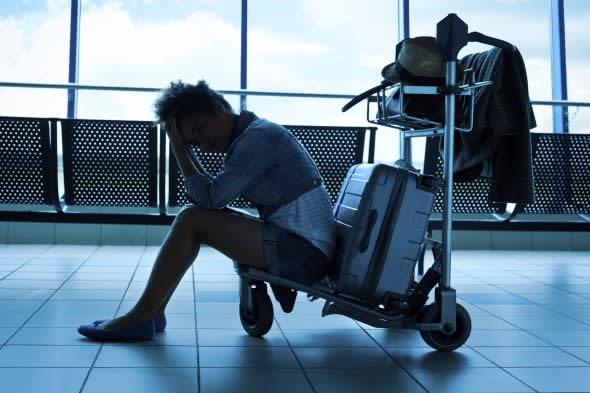Ten ways to make sure your travel insurance WON'T pay out

We buy travel insurance so that we can throw caution to the wind, safe in the knowledge that our insurer is there to pick up the pieces if something goes wrong while we're away. But before you throw your caution too far, bear in mind that it doesn't always work out that way.
According to a survey by Which? last year, one in ten people who make a travel insurance claim have it refused. That's double the rate of rejections they found on home insurance - and higher than any other type of insurance that the organisation has ever surveyed members on.
In a nutshell, the problem is that travel insurers don't just give you blanket cover for anything and everything. They issue pages and pages of small print describing an enormous number of conditions you have to meet to be paid compensation, and exclusions outlining the circumstances in which they can avoid paying your claim. If you fall foul of these, they will reject your claim out of hand.
Given that claims can be for thousands of pounds (and in some cases tens of thousands of pounds), it's worth being aware of the most common ways insurers wriggle out of paying. So we have assembled ten of the most common things we do on holiday which mean that our insurer will not cover us.
1. Leaving things unattended
This ranges from leaving valuables on the beach when you go for a swim to storing your luggage on a luggage rack that's not within sight. You don't want to be uptight when you're trying to unwind, but if you choose to take this sort of risk you need to be aware that you won't be covered if someone wanders off with your valuables. One of the things that might come as a surprise is that this includes things that you put into the hold on the plane too - so check your policy before you pack anything into your suitcase.
2. Failing to tell the insurer about something when you take out your policy
This most often applies to health-related claims. If you have symptoms of any kind before you take out the insurance, the insurer won't pay out because they will say you had a pre-existing condition and should have notified them. If you have been to the doctor with anything from dizziness to headaches - or if you are taking medicine for any condition - let the insurer know
3. Failing to follow the 'correct procedure'
If something goes wrong, then one of your first calls should be to your insurer. They will have a specific procedure you need to follow in order to secure a payout, and if you don't follow it, they won't pay. In the case of medical claims there's usually a helpline to call. In the case of theft, when you call for advice you will usually be told to report it to police within 24 hours or any claim will be refused. And in the case of lost luggage, check what you can buy and keep the receipts, or they may refuse to refund your expenses.
4. Doing something dangerous
All sorts of things are excluded by some policies, from scuba diving to skiing. And while you might know you need specialist cover for this sort of thing, it's easy to be caught out by policies which exclude things like golf.
5.Choosing the wrong location dangerous
If there is some sport of civil unrest or natural risk at your destination, then you need to think carefully about whether you travel. if the Foreign and Commonwealth Office says its still safe to travel there, then your insure may not cover you for cancellation. However, on the flip side, if the government has advised against travel to the area, then you won't be covered if you decide to go regardless.
6. Getting drunk
For many people doing out on the town is part of the holiday. However, if you have an accident or suffer an illness while you're under the influence of drink or drugs, then your policy won't cover you. That drunken decision to dive into the pool could prove alarmingly expensive.
8. Being too attached to your relatives
Your policy will cover you if a close relative dies or is so ill that you have to return home or cancel your holiday. However, before you cancel your holiday for your uncle or your son-in-law, check what your policy counts as a close relative, because they may be excluded.
9.Dragging your heels
After you suffer a holiday mishap in which you can claim. If you wait too long to make a claim then it doesn't matter if you do everything else right - your claim will be refused because you missed the deadline.
10. Buying expensive sunglasses
One common exclusion is for sunglasses. This is because they can be so expensive, and are so vulnerable to loss, theft or damage on a holiday. If you're determined to look glamorous on your break, treat your glasses with great care - or buy something cheap and disposable.
Related articles
Pensioners face huge hikes in travel insurance costs
Air passenger wins 'landmark' compensation claim after 27 hour delay





